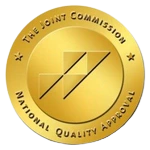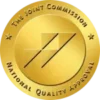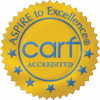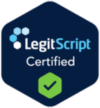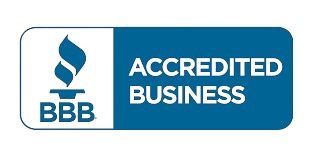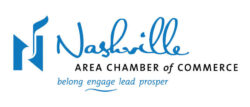Addiction Treatment Aftercare in Murfreesboro, TN
Addiction treatment aftercare in Murfreesboro is a vital bridge between formal rehab and everyday life.
Our aftercare program for substance abuse in Murfreesboro is not just another program.
It’s a blend of Partial Hospitalization Programs (PHP) and Intensive Outpatient Programs (IOP) that provides personalized support during the transition from treatment to independent recovery.
This uniqueness is what sets us apart from other drug rehab centers.
We start by assessing your progress and understanding your unique needs—from your home environment to your long-term recovery goals- making us different from a lot of drug rehab centers.
This hands-on approach means you’re not just leaving treatment; you’re stepping into a plan that builds a network of support.
We help you compile a list of trusted family members and friends and connect you to local support groups that can be a lifeline during challenging times.
With our addiction aftercare programs, paired with our proven treatment methods, you gain practical tools and ongoing check-ins that help you stay strong and avoid relapse.
If you’re exploring options like drug rehab aftercare services in Nashville or looking for additional addiction aftercare services in Nashville, we’re here to guide you every step of the way.
What Is an Aftercare Rehab Program?
An aftercare rehab program is a follow-up plan that helps you stay on track after completing formal addiction treatment for a substance use disorder and any co-occurring disorders.
It’s not just a final step—it’s a continuation of care that helps you stay grounded and supported in early recovery.
At our facility, aftercare is built into everything we do, starting with our Partial Hospitalization Program (PHP) and Intensive Outpatient Program (IOP).
In PHP, you’ll attend structured treatment sessions during the day and return home in the evening.
For those who still need regular support but a bit more flexibility, IOP offers scheduled therapy and recovery-focused activities several days a week.
Both of these options are designed to help you build on the work you’ve already done without losing momentum.
If you’re transitioning out of the area or need additional resources, we can connect you to drug rehab aftercare services in Nashville or elsewhere as part of our extended recovery network.
The Importance of Comprehensive Aftercare Programs
Key Benefits of Aftercare for Drug and Alcohol Addiction Recovery
Aftercare programs teach you strategies to manage stress and avoid potential triggers before they lead to relapse. We work with you to recognize personal and environmental triggers, setting you up with practical ways to sidestep or counteract them.
Whether it’s ongoing therapy, regular check-ins, or support group meetings, our aftercare services ensure you’re never alone on your path to recovery.
We consider your progress during formal treatment, along with factors like your home environment.
Together, we set personal goals that evolve as you do.
Our program assists you in creating a list of supportive contacts, ranging from friends and family to community and recovery groups, to ensure you always have a resource to turn to when challenges arise.
This personalized approach empowers you to build a stable, relapse-resistant lifestyle, making our addiction aftercare services a vital resource—even for those transitioning in nearby regions.
Our Step-by-Step Aftercare Program for Substance Abuse
When you’re ready to build on your progress, our aftercare program for substance abuse will guide you every step of the way.
-
Initial Assessment & Planning
As part of our planning, we assess how far you’ve come in your journey so far.
During the planning phase, we set realistic, meaningful recovery goals in collaboration with you, taking into account your unique circumstances and what you hope to continue achieving in your recovery.
This ensures that your recovery plan is tailored to your needs and is more likely to be effective.
We also discuss your home environment, support system, and any challenges you face day to day as we create your outpatient treatment and aftercare plan.
-
Integrated Therapies
Getting sober is only part of the work—real recovery means building a life that supports staying sober. That’s why our addiction aftercare programs go beyond just checking in.
We use a mix of integrated therapies to help you grow mentally, emotionally, and socially after treatment.
You’ll meet regularly for one-on-one counseling and mental health therapy, where you can talk through personal struggles and stay focused on your goals. This is also a time to continue to work on your mental health treatment goals if you have co-occurring mental health disorders.
Group therapy sessions are another key piece.
They give you a space to connect with others who understand what you’re going through, share insights, and support each other.
We also bring families into the process when possible.
Family involvement can strengthen your recovery by helping repair relationships, rebuild trust, and create a better support system at home.
However, we respect your privacy and will only involve your family if you agree.
-
Ongoing Support and Regular Check-Ins
Recovery doesn’t stop after treatment ends. Neither does our support or dedication to providing evidence-based therapies, which sets us apart among rehab centers in Murfreesboro and other locations.
Long-term sobriety takes consistency, accountability, and people in your corner who know what you’re going through.
That’s why our substance abuse aftercare program includes regular check-ins and ongoing follow-ups to help you stay on track.
Whether you’re facing a rough day, celebrating a win, or just need someone to talk to, our team is always a call or message away, providing ongoing support and reassurance.
The goal is to give you steady guidance without overwhelming your day-to-day life.
Everyone’s recovery journey looks different—some people need frequent contact in early recovery, while others benefit from occasional check-ins as they grow more confident. Explore our Partial Hospitalization Program (PHP) and Intensive Outpatient Program (IOP) to learn how these services fit into your long-term aftercare.
The longer crystal meth abuse continues, the harder it becomes to repair the physical, emotional, and social damage.
That’s why early intervention is so critical. At Tulip Hill Recovery, our methamphetamine addiction treatment in Murfreesboro provides a safe, structured environment where healing and true recovery can begin.
Enhanced Relapse Prevention: Strategies and Tools
We work with you on things like mindfulness techniques to keep your thoughts centered, stress management practices to handle daily pressure, and small but important adjustments to your daily routine.
These aren’t just buzzwords—they’re proven ways to help you manage cravings, stay present, and maintain your sobriety when life throws challenges your way.
-
Identifying Relapse Triggers:
In our aftercare program, we take time to help you identify what might lead to a setback.
That might be a high-stress job, unresolved relationship issues, symptoms of mental illness known as dual diagnosis or a co-occurring mental illness, or even being in the wrong environment.
Once we identify the triggers, we collaborate to develop a strategy to prevent surprises.
Having the ability to identify early indicators of stress or temptation can significantly aid in preventing relapse.
-
Relapse Prevention Strategies:
Our approach includes practical tools such as:
- Mindfulness Techniques: Learning to focus on the present can help prevent negative thoughts and urges from taking over.
- Stress Management Practices: Techniques like deep breathing, meditation, and physical exercise can significantly reduce stress, one of the most common relapse triggers.
- Daily Routine Adjustments: Establishing a structured routine helps reinforce healthy behaviors and reduces the chance of reverting to old patterns.
-
Workshops and Support Sessions:
To reinforce these strategies, we offer specialized workshops and regular support sessions, which are central to our aftercare program.
- Group Workshops provide a safe space to discuss experiences and learn from others.
- One-on-one coaching sessions help tailor strategies to your unique needs, focusing on developing a robust plan for avoiding relapse.
- Support Groups with peers can offer insights, shared experiences, and ongoing motivation.
-
Real-Life Examples and Community Stories:
We’ve seen firsthand how these strategies make a difference.
For example, during our weekly outings, many clients share how a simple mindfulness practice or a stress-relieving walk in nature has helped them overcome a moment of weakness.
One client mentioned, “I used to feel completely overwhelmed during a stressful week, but now, I take a few mindful minutes outdoors, and it makes all the difference.”
These examples and success stories serve as constant reminders that while the journey can be tough, having the right relapse prevention strategies in place is key to long-term success.

Family and Community Support in Addiction Aftercare
Recovery is not a solo journey—family, friends, and a supportive community form a vital network to help maintain long-term sobriety.
In addiction treatment aftercare in Murfreesboro, we believe that nurturing these relationships is key to building a sustainable, healthy lifestyle.
A strong support network creates an environment where recovery can flourish.
Family and friends not only provide emotional backing but also help reinforce the healthy habits you’ve developed during treatment.
Engaging with community resources—from local support groups to community events—can further solidify your progress and keep you motivated.
Related Blog Resources
At Tulip Hill Recovery, we believe that education is a powerful tool in recovery. To help you better understand the effects of addiction and the path to healing, we’ve created several in-depth resources you can explore:
Guidance for Loved Ones
For those supporting someone in recovery, there are several effective ways you may be able to help:
- Make yourself available as a stable source of encouragement. Your consistent presence, whether through a quick call, a text, or a visit, can significantly impact the situation.
- Work together to create a safe, sober environment. This might mean clearing out any substances from the home and setting up spaces that promote relaxation and focus.
- Encourage your loved one to attend their therapy sessions and support groups. Gently remind them of the benefits of these sessions and invite them to family support meetings.
- Regularly check in about their progress and listen without judgment.

Resources and Support Groups
Our aftercare program connects you with various local and online support groups that have helped many clients navigate the challenges of early sobriety.
Some of the key resources include:
- Alcoholics Anonymous (AA) is a well-established community providing peer support through regular meetings.
- Narcotics Anonymous (NA) is a dedicated group for individuals recovering from drug addiction, offering a safe space to share experiences.
- Al-Anon is a resource for family members and friends to learn how to support loved ones while taking care of themselves.
- Online Forums and Virtual meetings are platforms that ensure that you stay connected to a supportive community, even if in-person meetings are not accessible.
Additionally, our Resource Hub is designed to equip you with valuable tools to enhance your recovery journey. Here you’ll find:
- Downloadable Guides: Practical handouts on coping strategies, relapse prevention techniques, and stress management.
- Contact Information: Quick access to local support networks and crisis intervention services.
- Related Articles: Curated readings on various aspects of aftercare to deepen your understanding of sustained recovery.
Along with aftercare, we provide a wide variety of other behavioral health and addiction treatment services, including group counseling, individual therapy, and management of withdrawal symptoms.
Addiction Treatment and Aftercare in Murfreesboro
We offer addiction and mental health treatment that changes lives. Additionally, we provide addiction treatment aftercare in Murfreesboro for alcohol, opioids like heroin, or prescription medications such as Xanax. We want to help you stay sober for the rest of your life. Contact Tulip Hill Recovery today and find out how to get started.
Frequently Asked Questions — Addiction Treatment and Aftercare in Murfreesboro
Murfreesboro offers a full continuum of care, including medical detox, residential treatment, partial hospitalization (PHP), intensive outpatient programs (IOP), outpatient counseling, and sober living options. Many centers also provide specialized services such as dual diagnosis care, trauma therapy, and medication-assisted treatment (MAT).
The right level of care depends on your clinical needs, withdrawal risks, mental health symptoms, and home environment. Most treatment centers in Murfreesboro begin with a confidential assessment to determine whether detox, residential treatment, or outpatient care is the safest and most effective starting point.
Most major insurance plans—including BCBS, Aetna, Cigna, Optum, and others—offer coverage for substance use treatment under behavioral health benefits. Coverage varies based on your plan, so it’s best to verify benefits directly with the treatment provider for an accurate estimate of costs.
Our treatment programs provide support for alcohol addiction, opioids (including fentanyl and heroin), benzodiazepines, methamphetamine, cocaine, prescription drugs, and polysubstance dependence. As well as, also addressing co-occurring mental health disorders.
Evidence-based therapies commonly used in Murfreesboro include cognitive behavioral therapy (CBT), dialectical behavior therapy (DBT), trauma-focused therapy, motivational interviewing (MI), family therapy, EMDR, and relapse-prevention training. Holistic approaches—such as fitness, mindfulness, and nutrition support—are often integrated as well.
Aftercare includes ongoing support services—such as outpatient therapy, peer support groups, medication management, sober living, and recovery coaching—that help individuals transition back into daily life. Effective aftercare is one of the strongest predictors of long-term sobriety and reduces the risk of relapse.
Yes. Our Murfreesboro programs offer family therapy, educational workshops, and weekly communication updates. Family involvement helps repair relationships, improve communication, and create a healthy environment that supports recovery.
Long-Term Recovery & Relapse Prevention in Murfreesboro, Tennessee | Tulip Hill Recovery
Recovery does not end after detox or residential rehab. Long-term sobriety requires continued support, accountability, and relapse prevention planning. Tulip Hill Recovery offers addiction aftercare programming in Murfreesboro, TN to help individuals maintain progress and build a sustainable recovery lifestyle.
After completing treatment, many individuals face ongoing challenges such as cravings, stress, emotional triggers, and reintegration into daily responsibilities. Without structured aftercare, relapse risk remains significantly higher during the first year of recovery.
Our aftercare program provides ongoing therapy referrals, peer support, relapse prevention strategies, recovery planning, and continued connection to clinical resources. Clients also receive guidance in maintaining mental wellness, rebuilding relationships, and strengthening coping skills.
At Tulip Hill Recovery, aftercare is designed to support lifelong healing, not just short-term stabilization.
Admissions specialists are available to help clients and families plan the next steps in recovery.
The information presented on Tulip Hill Recovery website pages is intended solely for general educational and informational purposes related to addiction treatment, medical detoxification, rehabilitation services, and recovery support. This content is not intended to serve as medical advice, diagnosis, treatment planning, or a substitute for professional medical care. Substance use disorders are complex medical conditions that require individualized evaluation by qualified healthcare professionals.
Detoxification and rehabilitation needs vary widely based on the type of substance used, duration and frequency of use, physical health, mental health history, co-occurring disorders, and other individual factors. Information discussing detox timelines, withdrawal symptoms, medications, or treatment approaches is generalized and may not apply to every individual. Treatment decisions should always be made in consultation with licensed physicians, addiction specialists, or behavioral health providers.
If you or someone you love is experiencing a medical emergency — including but not limited to overdose, seizures, loss of consciousness, breathing difficulties, chest pain, suicidal thoughts, or violent behavior — call 911 immediately or go to the nearest emergency room. Tulip Hill Recovery does not provide emergency medical services through this website, and no online content should delay urgent medical intervention.
Attempting to detox from alcohol, opioids, benzodiazepines, or other substances without medical supervision can be dangerous and potentially life-threatening. Withdrawal symptoms can be unpredictable and severe. Any detox-related information provided is for awareness only and should never replace professional medical oversight.
Information regarding insurance coverage, treatment costs, or payment options is provided for general guidance purposes only. Insurance benefits vary by carrier, policy, state regulations, and medical necessity determinations. Coverage information is not guaranteed and may change without notice. Tulip Hill Recovery strongly encourages individuals to contact our admissions team directly to verify insurance benefits, eligibility, and coverage prior to making treatment decisions.
While reasonable efforts are made to ensure accuracy, Tulip Hill Recovery makes no warranties regarding the completeness or timeliness of website content. Healthcare regulations, clinical standards, and insurance policies evolve regularly. Reliance on any information provided is at your own risk.
This website may include references or links to third-party resources for informational purposes. Such references do not constitute endorsements. Tulip Hill Recovery is not responsible for external content, services, or policies.
Use of this website does not establish a provider-patient relationship. Contacting Tulip Hill Recovery does not guarantee admission or treatment. Recovery outcomes vary and are never guaranteed.
All content published on Tulip Hill Recovery website pages is provided for informational purposes only and should not be interpreted as medical, psychological, or legal advice. This information is not intended to diagnose, treat, cure, or prevent any disease or condition and should not replace consultation with licensed healthcare professionals.
Addiction is a chronic, relapsing medical condition that requires individualized care. Treatment approaches, detox protocols, and rehabilitation services vary depending on numerous factors unique to each individual. No information on this website should be relied upon to make treatment decisions without professional guidance.
If you are experiencing an emergency situation, including overdose, withdrawal complications, suicidal ideation, or immediate risk to yourself or others, call 911 immediately. Tulip Hill Recovery does not provide emergency medical services online or via website communication.
Never attempt to discontinue substance use or begin detox without proper medical supervision. Withdrawal can cause serious medical complications. Any information regarding detoxification is general in nature and does not substitute for physician-directed care.
Insurance information presented on this website is intended solely to assist users in understanding potential coverage options. Coverage is subject to verification, medical necessity determinations, and policy limitations. Tulip Hill Recovery encourages direct contact with our admissions specialists to confirm benefits and eligibility.
We do not guarantee treatment outcomes, length of stay, insurance approvals, or placement availability. Outcomes depend on numerous clinical and personal factors.
External links are provided for convenience and informational purposes only. Tulip Hill Recovery assumes no responsibility for third-party content or practices.
Use of this website does not establish a doctor-patient or therapist-patient relationship. Recovery requires professional support and individualized care.
Start Your Journey to Healing Today

Call or message us

Free assessment
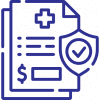
Insurance check

Choose a start date
Get Family Support Now
Supporting Families Through Recovery
We understand addiction affects the whole family. Our comprehensive family program helps rebuild trust and restore relationships.
Weekly Family Therapy Sessions
Educational Workshops
Support Groups
Communication Skills Training
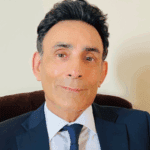 |
Medically Reviewed By:
Board-Certified Psychiatrist and Addictionologist
|
 |
Clinically Reviewed By:
Board Certified Clinical Social Worker
|
Our Verifications & Affiliations
Yes, Your Insurance Covers Detox and Rehab Treatment.
Get Family Support Now
Supporting Families Through Recovery
We understand addiction affects the whole family. Our comprehensive family program helps rebuild trust and restore relationships.
Weekly Family Therapy Sessions
Educational Workshops
Support Groups
Communication Skills Training




